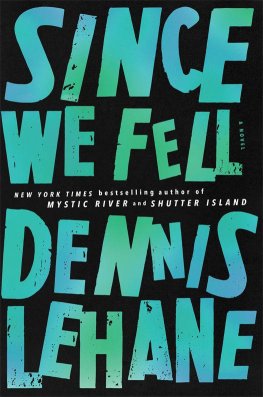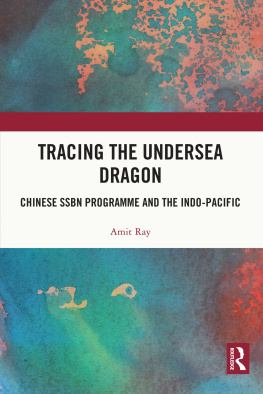Dennis Chamberland - Undersea Colonies
Here you can read online Dennis Chamberland - Undersea Colonies full text of the book (entire story) in english for free. Download pdf and epub, get meaning, cover and reviews about this ebook. year: 2007, publisher: Quantum Editions, genre: Romance novel. Description of the work, (preface) as well as reviews are available. Best literature library LitArk.com created for fans of good reading and offers a wide selection of genres:
Romance novel
Science fiction
Adventure
Detective
Science
History
Home and family
Prose
Art
Politics
Computer
Non-fiction
Religion
Business
Children
Humor
Choose a favorite category and find really read worthwhile books. Enjoy immersion in the world of imagination, feel the emotions of the characters or learn something new for yourself, make an fascinating discovery.
- Book:Undersea Colonies
- Author:
- Publisher:Quantum Editions
- Genre:
- Year:2007
- Rating:5 / 5
- Favourites:Add to favourites
- Your mark:
- 100
- 1
- 2
- 3
- 4
- 5
Undersea Colonies: summary, description and annotation
We offer to read an annotation, description, summary or preface (depends on what the author of the book "Undersea Colonies" wrote himself). If you haven't found the necessary information about the book — write in the comments, we will try to find it.
Undersea Colonies — read online for free the complete book (whole text) full work
Below is the text of the book, divided by pages. System saving the place of the last page read, allows you to conveniently read the book "Undersea Colonies" online for free, without having to search again every time where you left off. Put a bookmark, and you can go to the page where you finished reading at any time.
Font size:
Interval:
Bookmark:

A Brief History of Manned Undersea Exploration
Gre a t things are done when men and mountains meet.
William Blake
It is sheer speculation when we assume what the first civilized humans must have thought when they looked at the vast expanses of the oceans of the world. It is certain that they considered them dangerous. It must have been quite rare to find someone who lived around aquatic bodies who did not know of a human drowning or tragedy connected to the water. Even calm bodies of water leant the possibility of death any time humans dared to set foot into their void. So we presume that the first humans thought of the great deep with fear. It is thus not surprising that when we look at ancient manuscripts that they would reflect terror, uncertainty and even chaos at the mention of the deep.
In ancient literature, such as in the Judeo-Christian Bible, the underwater world is frequently described in dread as the deep. Indeed, it is recounted in almost mysterious terms. It is a place representing lostness and the most extreme form of isolation. King David referenced it twice:
Deliver me from the deep and do not let me sink; may I be delivered from my foes and from the deep waters. May the flood of water not overflow me nor the deep swallow me up Psalm 69:14-15
If I take the wings of the dawn, if I dwell in the remotest part of the sea, even there Your hand will lead me, and Your right hand will lay hold of me. If I say, Surely the darkness will overwhelm me, and the light around me will be night Psalm 139:9-11
The prophet Ezekiel also wrote, For thus says the Lord GOD, "When I make you a desolate city, like the cities which are not inhabited, when I bring up the deep over you and the great waters cover you, then I will bring you down with those who go down to the pit, to the people of old (Ezekiel 26:19-20) And the first submariner, the prophet Jonah, recounted from his experience, "Water encompassed me to the point of death. The great deep engulfed me; weeds were wrapped around my head. (Jonah 2:5)
And then there is my favorite Biblical reference: to the Apostle Paul as historys first aquanaut when he states in 2 Corinthians 11:25, Three times I was beaten with rods, once I was stoned, three times I was shipwrecked, a night and a day I have spent in the deep.
But it was inevitable that some human would look at the transparent deep of the undersea regions and not consider it a threat or necessarily dangerous. Some humans would look at the invariant beauty of the undersea world from the surface vantage point and, just because of its overwhelming allure, want to enter there. But the reasons for that impulse were not just aesthetics. There were other motives to want to submerge beneath the great waters of the world, from economic to military.
Predating even Judeo-Christian literature are indications that right at the dawn of civilization, around 4500 BC, ocean side communities such as Mesopotamia, China and Greece were involved in free diving activities for food gathering. Around 1000 BC, perhaps the earliest mention to a diving apparatus is an Assyrian fresco that depicts men swimming underwater, using a kind of breathing mechanism.
In the Iliad, Homer describes the use of divers in the Trojan Wars for military operations. And around 1000 BC Homer also mentions Greek sponge fishermen who dove down to 100 feet by holding onto rocks. Half a millennium later a Greek diver by the name of Scyllias and his daughter Cyana used reeds as snorkels and cut the mooring lines of Persian King Xerxes ships.

A Catalogue of Early Undersea Exploration Equipment
Notably, in 414 BC, historian Thucydides tells of the use of Greek military divers sent to clear obstacles from the harbor of Syracuse. 54 years later Aristotle describes an air supplied diving bell for sponge collection in his Problemata (not a name I would want to apply to any work during an expedition). He noted thus: "...in order that these fishers of sponges may be supplied with a facility of respiration, a kettle is let down to them, not filled with water, but with air, which constantly assists the submerged man; it is forcibly kept upright in its descent, in order that it may be sent down at an equal level all around, to prevent the air from escaping and the water from entering...."
It is reported that Alexander the Great was so fascinated by the undersea world, that in 332 BC he submerged in a diving bell to personally observe his military divers removing underwater obstacles during his siege of Tyre, now modern day Lebanon.
The first laws governing undersea work were set in place in 100 BC around major shipping ports in the eastern Mediterranean to cover wage scales for divers that acknowledged that hazard increased with depth. In 77 AD Plinius the Elder reports the use of air hoses by divers. In 1300 AD Persian divers were using eye goggles made from polished shells.
The first true technological advance came in 1500 when Leonardo da Vinci designed the first known SCUBA apparatus. The drawing appears in his famous Codex Atlanticus. His design was so ingenious that it actually incorporated an air supply and a buoyancy control device. Later, it is thought that he abandoned this idea in favor of the less technically challenging diving bell. There is no evidence that Leonardo ever progressed beyond his drawing.
In 1535, Guglielmo de Loreno developed what we consider today to be the first true diving bell. 1650 saw Von Guericke invent the first effective air pump and in 1691 Edmund Halley patented his diving bell connected to barrels of submerged air.

Lethbridge's Diving Engine
In 1715, inventor John Lethbridge had to find a way to feed his 14 children. So he invented what he called his Diving Engine an oak cylinder that was supplied with air from the surface. It was, of course, the first diving suit. His arms extended through holes in the side of the suit sealed by greased leather cuffs. What did John want to do each and every time he returned from taking his diving engine under 12 fathoms for up to half an hour at a time? Dont ask his wife.
It was right about this moment in history that machines and machine building techniques began to advance rapidly. And with that advance, the ability to create new devices began to emerge, hosting a wide range of novel approaches to many aspects of exploration, particularly undersea.
In 1776, the first authentic attack by a military submarine occurred in New York Harbor.

The seven foot tall wooden submarine Turtle was shaped like an egg with a windowed copper conning tower and had two hand cranked propellers. On September 7, captained by Army volunteer Sergeant Ezra Lee, Turtle attacked HMS Eagle which was moored off what is today Liberty Island, but it could not manage to bore through the Eagles hull and deposit the 100 pound time bomb it was carrying. When he attempted another spot in the hull, Lee bounced off the ship and bobbed to the surface, eventually abandoning the endeavor and fleeing to safety.
In 1823, Charles Anthony Deane patented a helmet used to protect firefighters from smoke. Its secondary purpose was to supply divers with air while working underwater. Five years later, Dean and his brother marketed the same helmet with a diving suit for exclusive use underwater. Two years following that, another inventor, Augustus Siebe, mated the helmet to a watertight arrangement that included a rubber suit. In 1843, after exclusive use of the new diving suit for military purposes, the Royal Navy established a diving school to train military divers. Then, in 1876, Henry Fleuss developed a dive apparatus that was self contained and used compressed oxygen.
Next pageFont size:
Interval:
Bookmark:
Similar books «Undersea Colonies»
Look at similar books to Undersea Colonies. We have selected literature similar in name and meaning in the hope of providing readers with more options to find new, interesting, not yet read works.
Discussion, reviews of the book Undersea Colonies and just readers' own opinions. Leave your comments, write what you think about the work, its meaning or the main characters. Specify what exactly you liked and what you didn't like, and why you think so.












